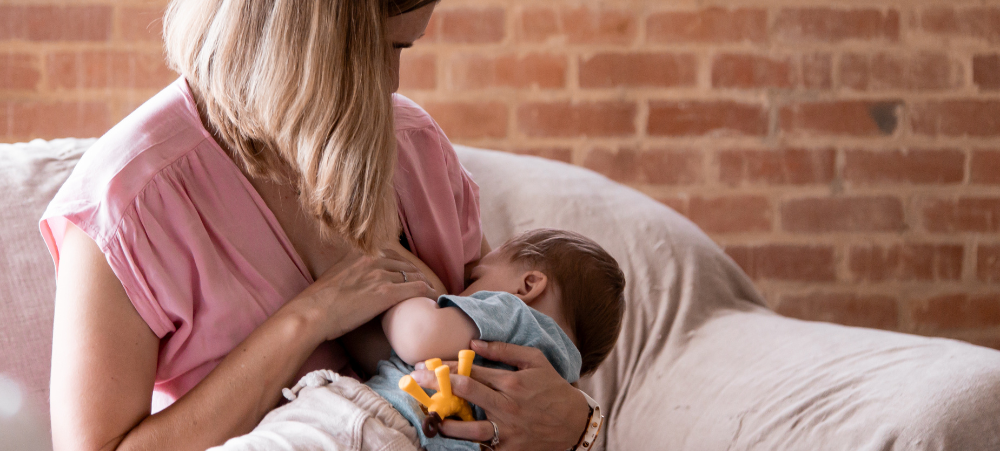Returning to work need not be cause for anxiety or a reason to abandon breastfeeding. Carefully managed you can make the transition seamlessly. Here are 4 tips to make breastfeeding whilst going back to work easier:
Consider when you are going back to work
The age of your baby when you return to work will determine the urgency with which you need to pursue getting her to take to bottles.
- If you know you are returning to work before your baby is 6 months old, you will need to prioritize establishing bottle-feeding. The reason is that milk is the priority food under 6 months of age and your baby will not be deriving much (if any) nutrition from solids at this stage. Expecting your baby to go all day without a feed is not realistic so you need to work on establishing the bottle – preferably with expressed breast milk
- If you are returning to work between 6 and 8 months, your baby should still have a mid morning and mid afternoon feed so it is preferable to have them on a bottle for these two feeds. That said, priorities are changing and you can be more flexible – not giving these feeds or using a sippy cup.
- If you are returning to work from 8 months on, it is not essential to get your baby onto a bottle as your little one only has the need for either a mid afternoon or mid morning milk feed (other than the waking feed and bedtime – which you will be there for anyway). So rather skip the bottle stage altogether and move towards a cup or sippy cup.
Expressing successfully
The best advice you will probably get if you are returning to work when your baby is young is to invest in a good quality electric breast pump. Take it with you to work. At around the time of your baby’s feed, go to a quiet space, put your feet up if you can and express. Once you have expressed, refrigerate the milk or place it in a cooler box until you get home.
Understand your baby’s sensory personality
Some babies alternate between bottle and breast-feeding as easily as can be. While others resist bottles and give their moms a tough time when they return to work – even going on a starvation diet for the hours when mom is at work and feeding all night. The reason babies respond differently to the transition to bottles, is related to their sensory personality. Some babies are more sensory sensitive than others and battle with change.
If your baby is more sensory sensitive, she may find the novel texture of the teat and the new flavor of the milk a real problem to tolerate. Slow to warm up and sensitive babies in particular find the transition a challenge. For these babies, you do need to plan ahead and work at exposing them to bottle feeds ahead of time.
It is worth determining your baby’s sensory personality as this will help you be more empathetic and plan ahead to ensure a smoother route.
When your baby won’t take the bottle
If your baby refuses the bottle and yet needs the feeds while you are away, you will need to keep persisting. In the month leading up to your return to work, try to get her to have 1 bottlefeed a week and closer to D-day, one feed a day from bottle until she accepts it.
To do this – offer expressed breastmilk – this is best for her and is a taste she is used to, so she is more likely to take to it. Then choose a feed when she is rested and not fractious – eg mid morning feed. The ask someone else to give it to her, not you. Try a few different teats until you find one she likes.
Good luck with your journey back to work. It can be tough but often the trauma is more for mom than for baby, so take heart.
With seven books between them, including the best-selling Sense series, the authors are also experienced communicators and respected media personalities in the parenting arena.
More importantly, they are two moms whose life’s work is helping parents on their journey to happy, healthy family mealtimes.
- WHAT YOU NEED TO KNOW ABOUT BREASTFEEDING AND RETURNING TO WORK - March 28, 2024
- WHEN IS THE RIGHT TIME TO INTRODUCE SOLIDS TO YOUR BABY? - August 25, 2023
- Collab weaning - March 10, 2021





